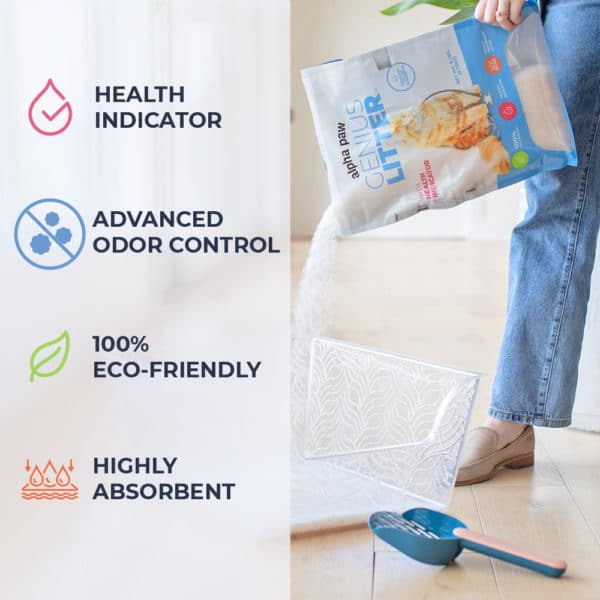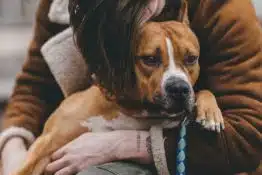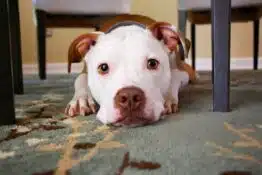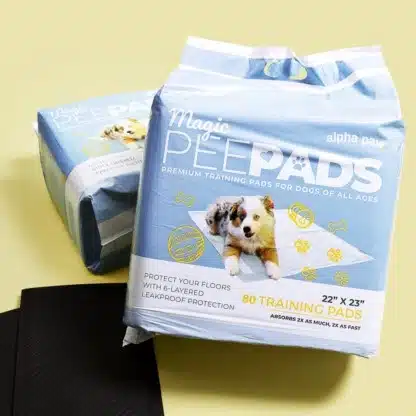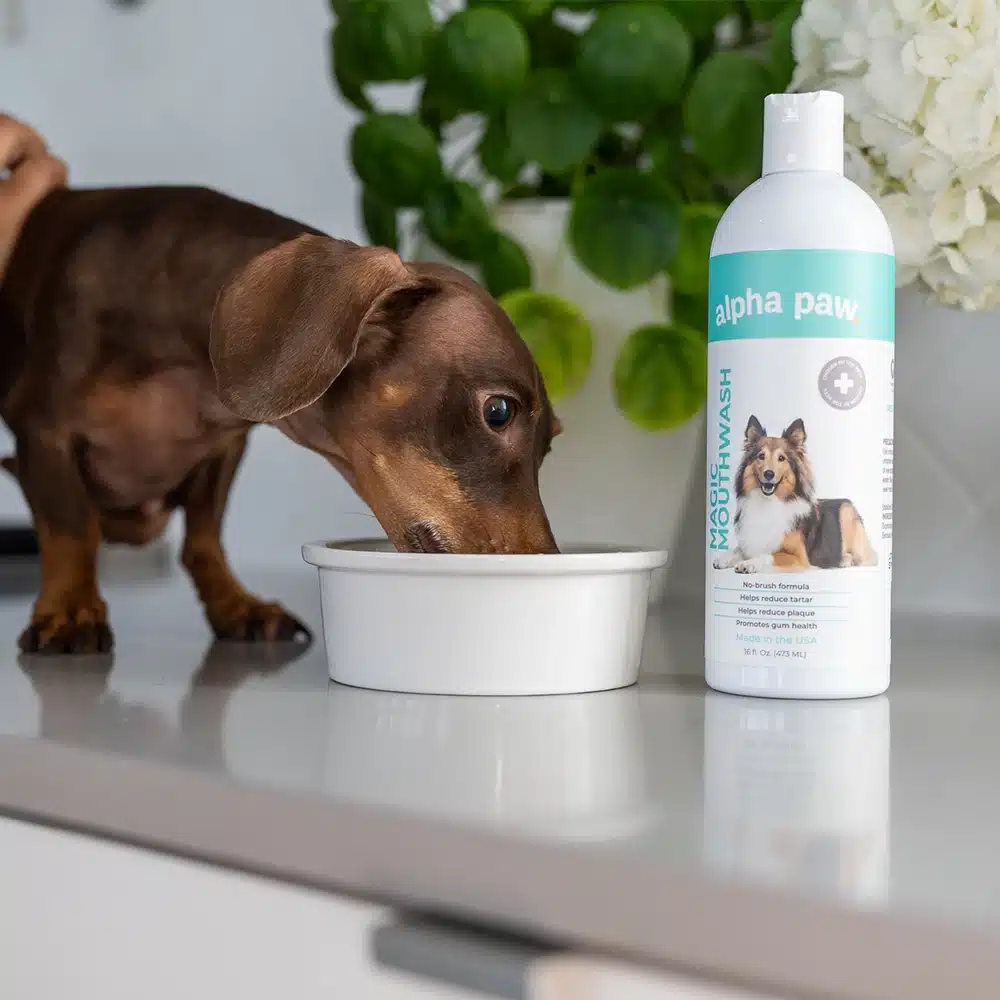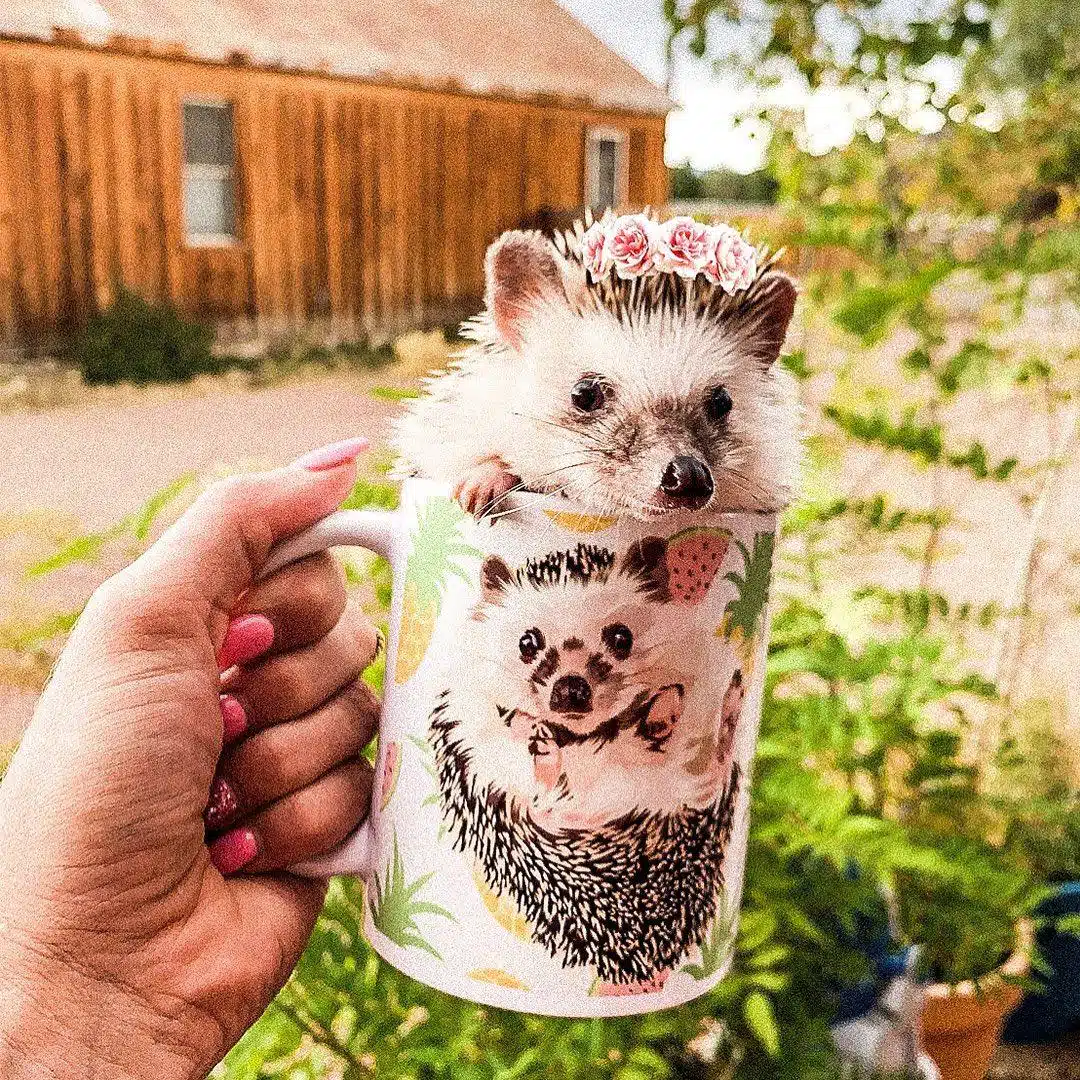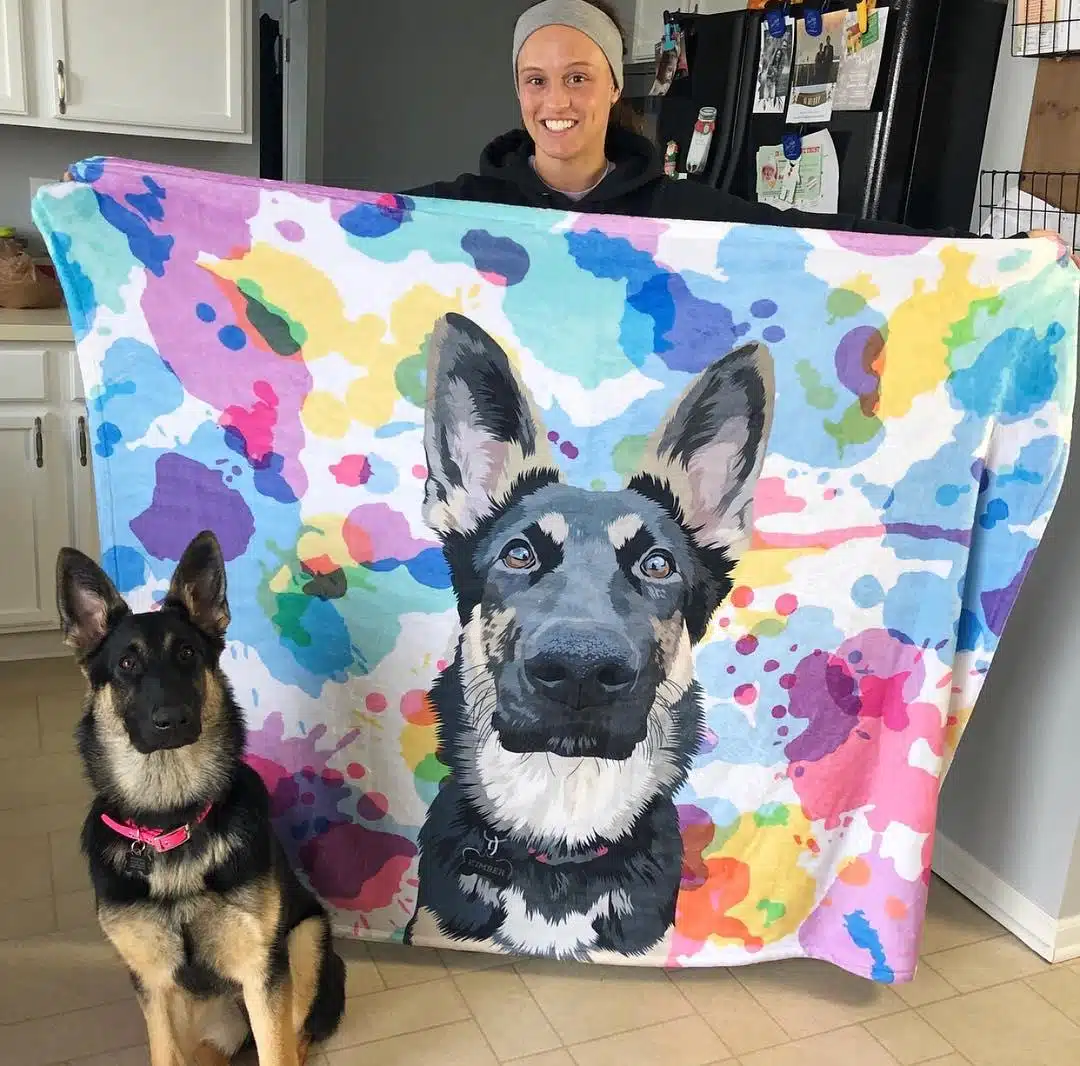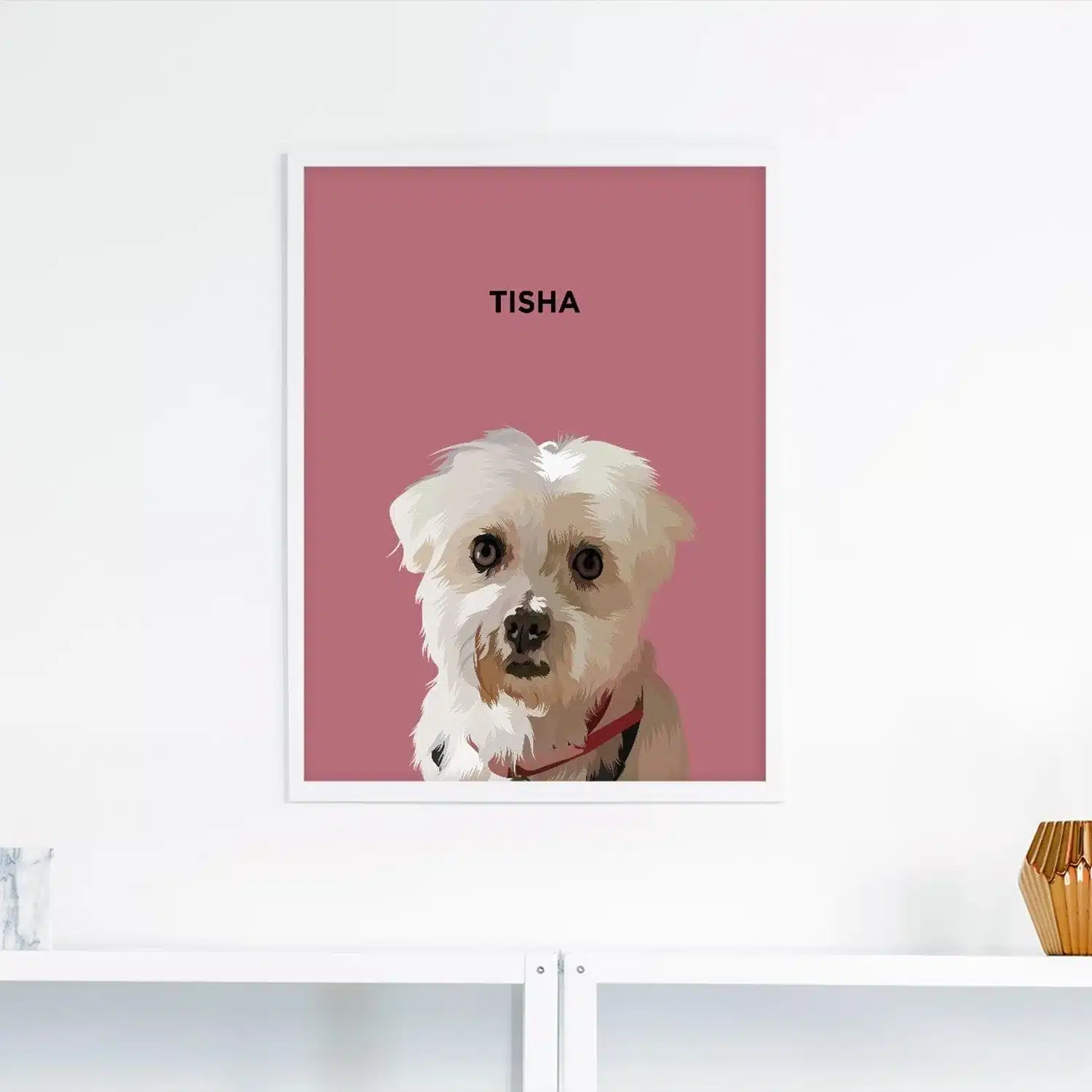Does your kitty love to dip her paws into the peanut butter jar or are you looking for creative ways to sneak some healthy fats into her diet?
Although your feline friend has always been an adventurous eater, recently, you came across a question, “can cats have peanut butter?”
Unfortunately, the answer isn’t quite as simple as yes or no.
When it comes to feeding your kitty, it’s important to learn the right way to do things so that your pet remains healthy and happy.
Learn more about can cats have peanut butter, the possible side effects of doing so, and the best ways to feed peanut butter to your cat, with this in-depth article!
Keep Learning!
Nutrient Content of Peanut Butter
Peanut butter contains carbohydrates, protein, fat, minerals, and vitamins. Here is the US Department of Agriculture providing nutritional information for 100 g of smooth peanut butter.
- Energy 597 Kcal
- Fat 51.1 g
- Sodium 429 mg
- Carbohydrates 22.3 g
- Dietary fiber 4.8 g
- Sugars 10.5 g
- Protein 22.5 g
Do Cats Get any Nutritional Benefits from Peanut Butter?
It is sometimes very tempting to offer some peanut butter to the cat when we’re eating it, and sometimes they might even eat a little bit.
But what do cats need nutritionally, and can feeding them peanut butter help meet their needs?
Well, the answer is that while they can eat peanut butter, it cannot provide essential nutrients because their digestive systems are designed for meat rather than anything processed like peanut butter.
Instead of feeding your cat peanut butter, provide your pet with meat-based treats or cat food to help them stay happy and healthy.
Peanut Butter Ingredients That Cause Problems
Make sure to read labels carefully and get familiar with problematic ingredients before feeding your cat peanut butter (if required).
1. Lots of Calories
Peanut butter contains lots of calories that are not recommended for cats. Indoors Cats are already prone to obesity, which can lead to a variety of health problems. Feeding calorie-dense peanut butter can exacerbate this problem.
2. Xylitol
During the processing of natural peanuts into peanut butter, additional ingredients may be added that are harmful to your cat. A common example is xylitol, an artificial sweetener that’s toxic to animals. You should not feed your cat xylitol-containing products.
Signs of xylitol poisoning include:
- Vomiting
- Drooling
- Lethargy
- Balance Issues
- Seizures
3. Chemical Preservatives
Peanut butter is a tasty addition to many humans’ diets. While it tastes wonderful for us, peanut butter is not all that great for cats.
In fact, peanut butter contains something called sodium benzoate which is added to preserve the food. This chemical additive is highly toxic to cats and can lead to death if consumed in large quantities.
4. High Fat
Peanut butter is high in fat, which means that cats are more likely to develop heart failure and diabetes type 2 from it. It also contains a large amount of oil. Oil in high amounts for felines can cause liver damage.
5. Sodium
The roasted peanuts used in peanut butter contain a high level of sodium. If your cat consumes large amounts of salty foods (high levels of sodium), he/she is at risk of high blood pressure and heart disease.
Symptoms of high-sodium poisoning include:
- Seizures
- Diarrhea
- Excessive Thirst and/or Urination
- Depression
- Vomiting
Risk Associated with Peanut Butter
When giving peanut butter to your cat, it is important to take into account the following risks:
1. Choking Hazard
Peanut butter is thick and sticky, which is not optimal for cats. Sometimes, a little bit of peanut butter can get stuck in your cat’s throat which can lead to choking. So you should keep your cats safe by not feeding them peanut butter.
2. Gastrointestinal Upset
Although peanut butter can be good for a human’s digestive system, it’s not usually good for a cat’s. Consuming peanut butter can cause cats to experience diarrhea, gas, vomiting, and stomach pains.
3. Allergic Reaction
It is not uncommon for cats to have peanut allergies. Depending on the severity of the allergies, the symptoms can range from an itchy skin rash and ear infections to anaphylaxis, which can be life-threatening. If your cat has an allergic reaction to peanuts, you should take them to the vet as soon as possible.
4. Diabetes Type 2
In addition to being high in energy, peanut butter is high in sugar as well, which may lead to diabetes type 2 in cats when consumed frequently. High sugar levels, especially in a short period, can cause diabetes in cats. It is dangerous for cats to have diabetes.
5. Lead to Weight Gain
Peanut butter contains almost 100 calories per tablespoon, which is more than your cat needs each day. Frequent consumption may lead to obesity. So it is not good for cats to eat peanut butter.
6. Chances of Aflatoxins
Aflatoxin is often present in nuts or maize and is known to cause liver disease and cancer. It can also be found in peanut butter, so you might want to think twice before giving your cat a treat of peanut butter. In some cases, aflatoxins can lead to death, which makes this more of a question of curiosity than anything else!
How Can I Feed My Cat Peanut Butter Safely?
Though peanut butter isn’t recommended for cats, if you want to give it a try, follow these rules:
1. Talk to Your Veterinarian First
Consulting your veterinarian before choosing peanut butter for your cat will reduce the risk of complications.
For example, cats with a certain type of enzyme deficiency are susceptible to a toxin found in peanuts that can cause serious illness and even death.
If you’re not sure whether or not peanut butter is safe for your cat, contact your vet and ask for his or her advice on the matter.
2. Read the Nutrition Label Carefully
You should always read the ingredient list before buying peanut butter for your cat. Here are some ingredients that should be absent in the desired peanut butter:
- Sugar
Peanut butter manufacturers add extra sugar to improve its taste. Avoid peanut butter with sugar as it has more calories and no nutrition.
- Salt
Peanut butter with high salt increases your cat’s sodium intake, placing her at greater risk for high blood pressure and other heart conditions.
- Preservatives
Chemicals in food like sodium benzoate are safe for humans but toxic to cats, leading to the potential for poisoning.
- Xylitol
Many brands of peanut butter contain xylitol, an artificial sweetener that may not be good for your cat. And never give a cat any food with xylitol because it is highly toxic to cats.
- Trans fats
Avoid peanut butter containing trans fats, since these substances have been shown to increase the risk of chronic diseases such as heart failure and diabetes type 2.
3. Calculate the Quantity
A cat should eat no more than half a tablespoon of peanut butter twice a week. According to the Clinical Nutritionist, treats shouldn’t make up more than 10 percent of your cat’s daily caloric intake.
As an example, a cat may eat 280 calories in a day, and only 28 of those calories should come from treats. Read the label on your peanut butter jar to see the number of calories per tablespoon.
The trouble with peanut butter is that a little bite has a lot of calories, so be sure to measure your portions.
4. Monitor Your Cat after Giving Peanut Butter
Watch your cat closely after you give it peanut butter because if you feed the wrong type or high amount, it can be fatal. If your cat shows any signs of weakness or distress such as low appetite, vomiting, or diarrhea then take them to a vet right away.
Can We Use Peanut Butter to Hide Medicine?
Peanut butter can be used to hide medicines that your cat doesn’t like, so long as he or she doesn’t exhibit any negative side effects. However, wet cat food is a better choice when performing this trick, but if there is no other way to get the pill into the cat, peanut butter may also work.
Is There Anything Else Cats Should Avoid?
Cats are considered obligate carnivores. This means that they need a high amount of protein in their diet and have a tough time processing carbs and sugars. For this reason, cats should avoid:
- Alcohol
- Sugary substances such as chocolate
- Milk and cheese
- Allium vegetables: Garlic, onions, chives
- Dough and foods containing raw yeast
Safe Alternatives to Peanut Butter
There are several foods you can use to safely feed your cat in place of peanut butter. One option is to feed them boiled eggs.
Another option would be boiled chicken, which can also give your cat the protein they need while providing them with some extra water and a different flavor that might entice them to eat.
If you want to share your food with your pet, limit it to the following:
- Cantaloupe
- Pumpkin
- Bananas
- Apples
- Spinach
- Blueberries
- Strawberries
- Carrots
- Rice
Healthy Protein Sources for Cats
A lack of protein is often a problem for cats. Protein deficiency can lead to weight loss, weakness, poor digestion, and behavioral changes.
Dogs and cats are carnivores so the best protein sources for them are:
- Red meat
- Fish
- Poultry
They can eat cooked meat, eggs, and fish. Don’t give raw food to your domesticated cats. Raw meats may contain bacteria that your cat could become ill from.
Key Takeaways
- Technically, cats can eat peanut butter. But the veterinary community agrees that it should only be fed occasionally and in small amounts.
- Feeding a cat too much peanut butter could lead to an upset stomach or other digestive issues.
- Due to the high-fat content of peanut butter, your cat can be led to diabetes and obesity as well as face the risks of choking because it has a slimy, buttery texture.
- Your cat may also have an unknown peanut allergy which can be deadly. So consult your veterinarian before giving your cat any new food items.
Importance of Pet Insurance
Pet insurance is a great way to protect your animal’s health. It can be hard to predict when an accident will happen, but with pet insurance, you’re covered.
There are a few different types of plans depending on your needs, and it only takes minutes to get coverage for your pet.
Some pet insurance companies will even cover 100% of veterinary expenses. So make sure to choose the best pet insurance plan for your furry friend.
Once you have a plan in place, vet bills will never be too high because they’ll already be covered by the policy.
It’s important that we all take care of our animals’ safety and well-being so they can enjoy their lives just as much as we do ours.
What Makes Genius Litter Different From Ordinary Litter?
Say goodbye to hauling heavy bags and hello to easy Genius Litter.
With our innovative non-clumping litter formula, you’ll need less of it. One bag of our disposable Genius Litter lasts up to a month, so you won’t need to refill the box as often and can save money on monthly costs.
One thing that separates us from traditional litter is that Genius Litter changes color to indicate when your cat has a potential health issue, so you can get them help before it becomes an urgent medical situation.
All you need to do is set up a delivery date with us each month, and rest easy knowing that Genius Litter will arrive at your doorstep every 30 days.
For a convenient solution for your cat, try Genius Litter today!
Why Is Lysine So Important For Your Pet?
Protect your pet’s immunity!
Have you noticed that your cat is coughing, sneezing, and having rapid breathing? Or maybe he/she has been scratching more than usual?
These are all signs of a weakened immune system. One way to prevent this from happening is by using lysine supplements.
Lysine plays a key role in your pet’s immunity because it helps to regulate the immune system.
Without enough lysine, your pets will be more susceptible to illness because their immune system can’t fight off infections as efficiently.
When they are sick, they will also be less able to absorb nutrients and make use of other supplements that can help them feel better.
Give your pet the support they need. Our Lysine supplement provides essential amino acids to help support a strong immune system.
Order now to get 300 one-scoop servings or 150 two-scoop servings and don’t worry about expiry!




